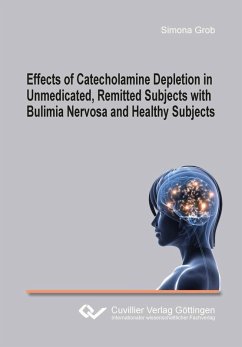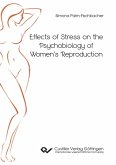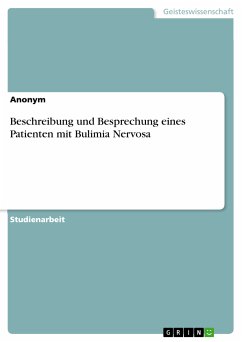This thesis consists of two reports focusing on the role of catecholaminergic function in the pathophysiologic mechanism of bulimia nervosa (BN). The study presented in Report 1 and in Report 2 is the first, to our knowledge, that applied the paradigm of catecholamine depletion in unmedicated remitted female subjects with bulimia nervosa (rBN) and healthy controls. In Report 1 the aim of the study was to examine a hypothesized catecholaminergic dysfunction in the pathogenesis of BN by assessing behavioral effects of catecholamine depletion in rBN. Report 2 investigated whether responses of the brain reward system using a probabilistic reward task differ between remitted female subjects with BN and healthy female controls following catecholamine depletion. Our findings support the notion of catecholaminergic dysfunction as a possible trait abnormality in BN. Moreover our results support the belief of a disturbance of the central reward processing system in rBN related to altered brain catecholamine levels.
Dieser Download kann aus rechtlichen Gründen nur mit Rechnungsadresse in A, B, BG, CY, CZ, D, DK, EW, E, FIN, F, GR, HR, H, IRL, I, LT, L, LR, M, NL, PL, P, R, S, SLO, SK ausgeliefert werden.
Hinweis: Dieser Artikel kann nur an eine deutsche Lieferadresse ausgeliefert werden.









